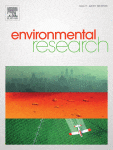Mito
Member
- Joined
- Dec 10, 2016
- Messages
- 2,554
Abstract
Background
Previous diet intervention studies indicate that an organic diet can reduce urinary pesticide metabolite excretion; however, they have largely focused on organophosphate (OP) pesticides. Knowledge gaps exist regarding the impact of an organic diet on exposure to other pesticides, including pyrethroids and neonicotinoids, which are increasing in use in the United States and globally.Objective
To investigate the impact of an organic diet intervention on levels of insecticides, herbicides, and fungicides or their metabolites in urine collected from adults and children.Methods
We collected urine samples from four racially and geographically diverse families in the United States before and after an organic diet intervention (n = 16 participants and a total of 158 urine samples).Results
We observed significant reductions in urinary levels of thirteen pesticide metabolites and parent compounds representing OP, neonicotinoid, and pyrethroid insecticides and the herbicide 2,4-D following the introduction of an organic diet. The greatest reductions were observed for clothianidin (− 82.7%; 95% confidence interval [95% CI]: − 86.6%, − 77.6%; p < 0.01), malathiondicarboxylic acid (MDA), a metabolite of malathion (− 95.0%; 95% CI: − 97.0%, − 91.8%; p < 0.01), and 3,5,6-trichlor-2-pyridinol (TCPy), a metabolite of chlorpyrifos(− 60.7%; 95% CI: − 69.6%, − 49.2%; p < 0.01). Metabolites or parent compounds of the fungicides boscalid, iprodione, and thiabendazole and the neonicotinoid insecticide imidacloprid were not detected among participants in our study.Conclusion
An organic diet was associated with significant reductions in urinary excretion of several pesticide metabolites and parent compounds. This study adds to a growing body of literature indicating that an organic diet may reduce exposure to a range of pesticides in children and adults. Additional research is needed to evaluate dietary exposure to neonicotinoids, which are now the most widely used class of insecticides in the world.
Organic diet intervention significantly reduces urinary pesticide levels in U.S. children and adults
Previous diet intervention studies indicate that an organic diet can reduce urinary pesticide metabolite excretion; however, they have largely focused…
